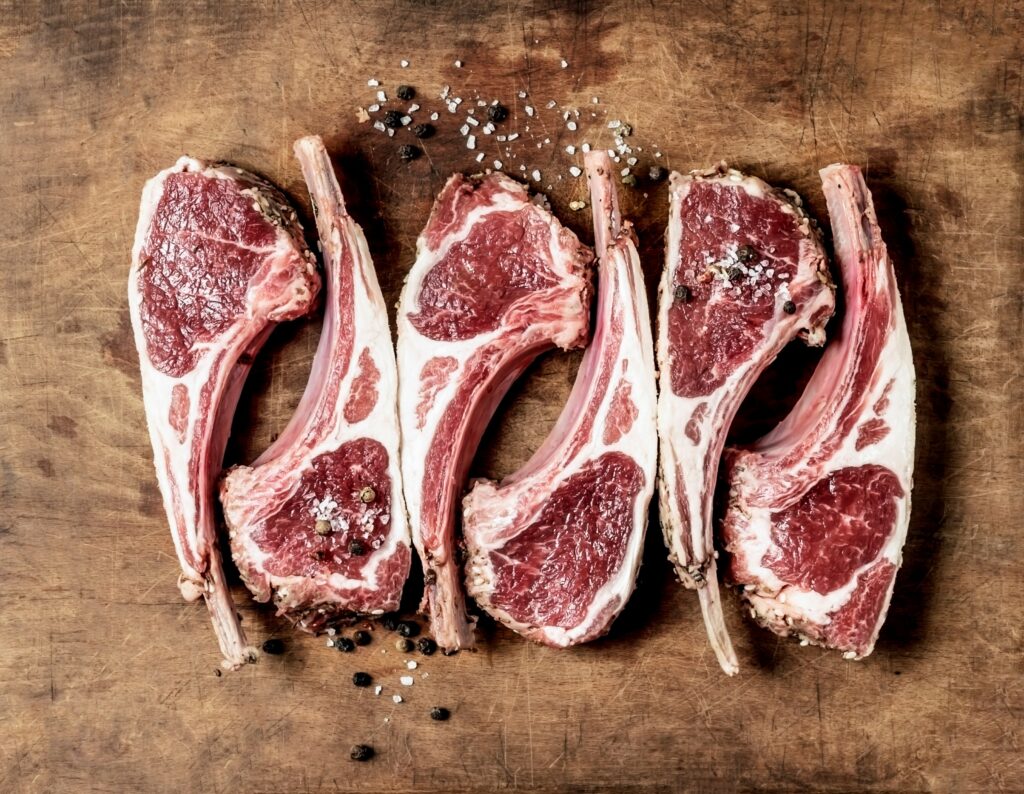You are in your doctor’s office getting lab results. The results say your cholesterol – Total and LDL levels – are “out of range” or “high.” What does that mean? Doesn’t cholesterol have something to do with heart attacks or strokes? Aren’t there drugs out there for this? What am I supposed to do now? What is LDL?
This is going to be a bit of a deep dive and may get a tad wonky. Bear with me because to answer the questions at the end, we need to understand how all the players work or don’t work together. Let’s start with some basic information.
What is cholesterol?
To keep this at its simplest, Let’s start by imagining that all ingredients eaten at a meal are plants or from plants. This is also known as “plant-exclusive”, there is nary an animal product or by-product in sight. We will add animal products in a minute.
When you eat, your liver takes some carbohydrates and proteins from your food and metabolizes them into triglycerides [a type of fat] and cholesterol. Then it adds some lipoproteins [proteins with fats connected] to make the cholesterol molecule, Very Low Density Lipoprotein [VLDL]. VLDL enters the bloodstream. As the VLDL streams through the entire body, fat tissue will take up the triglycerides. This triglyceride removal turns VLDL into Low Density Lipoprotein [LDL]. The same LDL that is listed on your test results.
Next, LDL transports cholesterol to cells such as adrenal glands, gonads, and muscle cells.[1] [2] Those cells use cholesterol to metabolize hormones such as testosterone and estrogen, Vitamin D; bile acids – which allow for the digestion of fats; and maintain cell membranes. Any cholesterol left goes back to the liver and becomes High Density Lipoprotein [HDL], also a number on your lab results. HDL removes forms of cholesterol from the bloodstream. Another way to think of it is that LDL is a UPS truck dropping off packages.[3] After the packages are delivered, LDL goes back to the liver. The HDL molecules are like garbage trucks that pick up the refuse from the LDL packages. When you are not eating any cholesterol, just making it in your liver, this system usually works well.
Why do animal foods raise cholesterol?
When you add animal products to the meal mix you immediately add more cholesterol. Remember you make cholesterol in your liver. Any living being with a liver – mammals, sea mammals, fish, amphibians, reptiles, poultry, and fowl makes cholesterol, and eating it increases your cholesterol level. While insects technically do not have a liver, crickets, for example, have equivalent cholesterol levels to most commercial meat products.[4] Additionally, animal by-product ingredients – eggs, milk, and cheese contain cholesterol. Interestingly, the saturated fats in tropical oils such as palm and coconut oil also increase LDL levels.
Will my cholesterol always be too high if I eat any animal products?
In full transparency, I must answer that as a no. The history of human eating patterns shows that many, long-lived cultures ate small amounts of animal products or ate them intermittently. Before you get too excited realize that these foods would be eaten once or twice a month. For example, many Asian societies added 1-3 ounces (about 85.05 g) of fish to a dish for flavoring. That dish would feed 3-8 people because the rest of the meal consisted of starches, grains, vegetables, legumes, and fruit. The cholesterol in the meal was small enough to allow the body to absorb and eliminate it. Also, these societies were agrarian and did not have foods with excessive triglycerides, think of soda and candy, which are used in cholesterol metabolization. Another factor was their intense physical activity converting fat calories from lunch into necessary energy and not fabricating additional fat tissue.
This has little to do with today’s world’s excessive amounts of animal products being eaten daily. According to the 2015-2020 Dietary Guidelines for Americans, people in the United States eat 20-60% more than the guidelines’ recommendations. The guidelines are looking to lower animal product consumption in general, not draw a line, and clarify what is the limit of dietary animal products to ensure healthy LDL levels.[5]
What is a healthy cholesterol level?
That is an excellent question! John Hopkins Medical Center says that Total cholesterol, the sum of adding LDL, HDL, and triglycerides together, should be less than 200 mg/dL; the unhealthy borderline is 200 to 239 mg/dL and a high level is above that. Hopkins continues that LDL should be less than 100 mg/dL, adding, ”This is the goal for people with diabetes or heart disease.”
WHAT!? Why do I want a cholesterol level set for people already dealing with chronic diseases? Don’t I want to be optimal or at least the same as folks who don’t have diabetes or heart disease?
It appears our hunter-gatherer ancestors had an LDL level of 50-75 mg/dL. That is also the healthy level stated in a 2018 American College of Cardiology/American Heart Association Task Force on Clinical Practice Guidelines report. However, the report is clear that you would also need to take statin medication to reach this level. Oddly, the article continues to say that vegetarians and vegans have been shown to be at these levels.[6] [More about the cholesterol-heart disease connection in my blog – How does cholesterol create heart disease?]
I don’t think it takes a rocket scientist or a wizened dietitian to conclude that “if eating something makes you sick, don’t eat it.”
Whoa, pardner! Before you mount your high horse, Veghead, aren’t there vegetarians or vegans with high LDL cholesterol? Most veggie folks I know have very low cholesterol. On the other hand, yes, I know plant-based people with high LDL levels.
How can a vegetarian have high cholesterol?
We need to revisit how cholesterol is made. I pasted that below, so you don’t have to find it.
When you eat a meal, your body takes carbohydrates and proteins in your food, metabolizes them into triglycerides and cholesterol, adds to that some lipoproteins [proteins with fats connected], and creates a type of cholesterol called Very Low Density Lipoprotein [VLDL].
The keyword above is triglycerides. As a vegan, you can be on the Oreo-mock meat-beer diet. The cookies, saturated fat in mock meats, and alcohol are broken down and reconstructed into triglycerides and cholesterol in the liver.[7] If you are plant-based or plant-exclusive with high cholesterol, it may be time to review what else is going in your mouth besides kale and walnuts.
I do have a protocol to cipher out whether you are one of the 1-2% of people in the world with naturally high cholesterol or whether you can turn this around yourself. Contact me if you have any questions.
Should I take a statin?
Just a note about statins, the medication given to lower cholesterol with little lifestyle change. Many of my clients had muscle pain and weakness with statins. Statins are not recommended when there is impaired liver function. Here is the American College of Cardiology statement about statins and diabetes, “The Crestor 20 mg Versus Placebo in Prevention of Cardiovascular (CV) Events (JUPITER) trial found 25% more cases of newly diagnosed diabetes in the statin group compared to placebo (270 vs. 216, out of 17,603 total).”[8] You may want to rethink your diet before taking a medication.
I have also worked with clients who initiated statin use to lower a life-threatening cholesterol level and changed their lifestyle at the same time. We eased them off the statin as cholesterol levels decreased. Conversely, a client with a Total cholesterol of 125 mg d/L was still on a statin. It took some persuading before their cardiologist agreed to let them stop the drug. I understood the doctor’s hesitancy but agreed with the client to give it a go. They are no longer on medication.
If you have high cholesterol, the first thing to do is stop eating it as much as possible and check your alcohol and sugary food intake. Realize that you have the power to make great changes without increasing your risk for liver damage or diabetes.
[1] Venugopal SK, Anoruo MD, Jialal I. Biochemistry, Low Density Lipoprotein. [Updated 2023 Apr 17]. In: StatPearls [Internet]. Treasure Island (FL): StatPearls Publishing; 2023 Jan-. Available from: https://www.ncbi.nlm.nih.gov/books/NBK500010/
[2] Zampelas A, Magriplis E. New Insights into Cholesterol Functions: A Friend or an Enemy? Nutrients. 2019 Jul 18;11(7):1645. doi: 10.3390/nu11071645. PMID: 31323871; PMCID: PMC6682969.
[3] Harvard Health. (2017, February 6). How it’s made: Cholesterol production in your body. https://www.health.harvard.edu/heart-health/how-its-made-cholesterol-production-in-your-body
[4] Payne CL, Scarborough P, Rayner M, Nonaka K. Are edible insects more or less ‘healthy’ than commonly consumed meats? A comparison using two nutrient profiling models developed to combat over- and undernutrition. Eur J Clin Nutr. 2016 Mar;70(3):285-91. doi: 10.1038/ejcn.2015.149. Epub 2015 Sep 16. PMID: 26373961; PMCID: PMC4781901.
[5] Neff RA, Edwards D, Palmer A, Ramsing R, Righter A, Wolfson J. Reducing meat consumption in the USA: a nationally representative survey of attitudes and behaviours. Public Health Nutr. 2018 Jul;21(10):1835-1844. doi: 10.1017/S1368980017004190. Epub 2018 Mar 26. PMID: 29576031; PMCID: PMC6088533.
[6] Grundy SM, Stone NJ, Bailey AL, Beam C, Birtcher KK, Blumenthal RS, Braun LT, de Ferranti S, Faiella-Tommasino J, Forman DE, Goldberg R, Heidenreich PA, Hlatky MA, Jones DW, Lloyd-Jones D, Lopez-Pajares N, Ndumele CE, Orringer CE, Peralta CA, Saseen JJ, Smith SC Jr, Sperling L, Virani SS, Yeboah J. 2018 AHA/ACC/AACVPR/AAPA/ABC/ACPM/ADA/AGS/APhA/ASPC/NLA/PCNA Guideline on the Management of Blood Cholesterol: A Report of the American College of Cardiology/American Heart Association Task Force on Clinical Practice Guidelines. Circulation. 2019 Jun 18;139(25):e1082-e1143. doi: 10.1161/CIR.0000000000000625. Epub 2018 Nov 10. Erratum in: Circulation. 2019 Jun 18;139(25):e1182-e1186. PMID: 30586774; PMCID: PMC7403606.
[7] Alcohol. (n.d.). https://www.heartuk.org.uk/low-cholesterol-foods/alcohol#:~:text=When%20you%20drink%20alcohol%2C%20it’s,liver%2C%20causing%20fatty%20liver%20disease
[8] Assessing Severity of Statin Side Effects: Fact Versus Fiction – American College of Cardiology. (2018, April 9). American College of Cardiology. https://www.acc.org/Latest-in-Cardiology/Articles/2018/04/09/13/25/Assessing-Severity-of-Statin-Side-Effects

